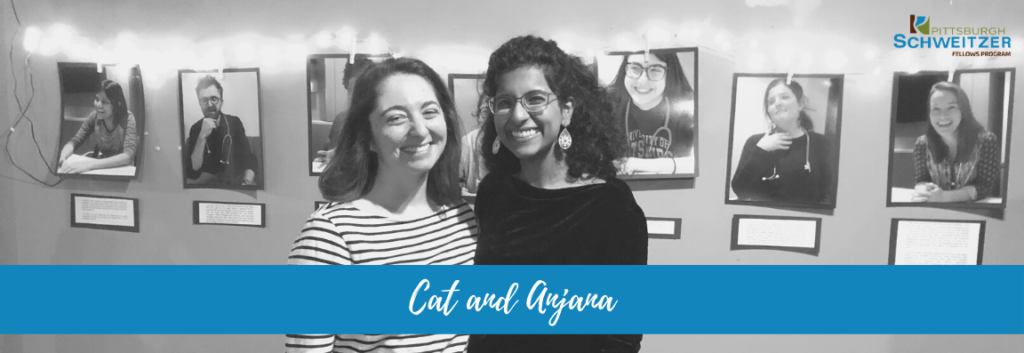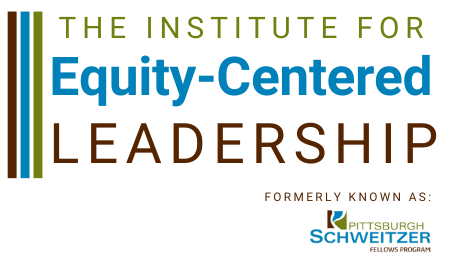
Once a week, you can find Catherine (Cat) Pressimone and Anjana Murali leading a virtual health and wellness session, which could entail anything from at-home skincare to cooking classes to meditation. Predicated on the belief that healthcare should be tailored to the needs of the community, Cat and Anajana’s project aims to help underserved populations over the hurdles of the healthcare system, such as its unaffordable costs, lack of doctor-patient trust, and disenfranchisement of women and women of color. Cat and Anjana are using their medical knowledge to prioritize comfort and accessibility in healthcare for one of Pittsburgh’s most overlooked, overworked, and under-appreciated populations: single mothers.
Cat and Anjana were both drawn to the medical field by their love of community service. Having known each other since their freshman year in college, they became a team during their school studies at the University of Pittsburgh, School of Medicine, where they are participating in the same research program. Cat and Anjana began their search for a community-based Fellowship project by seeking organizations that worked with women, where they found Mother to Son – a social program for single moms and their children, which provides support for disadvantaged communities in the form of health classes, academic tutoring, and one-on-one mentorship. When interviewing the participants about what they wanted from the project, Cat and Anjana saw a need for more hands-on, wellness-oriented activities for the single mothers within the program. Furthermore, they saw a community need for accessible healthcare for women and women of color, many of whom felt uncomfortable seeking treatment or could not afford it.
To address these needs, Cat and Anjana first aimed to build a relationship with the women in the project, establishing their presence as companions and volunteers rather than unempathetic medical experts. In an interview, Cat stated, “We have to be aware of how to interact with them…this group of people has, historically, been burned by the medical industry.” Anjana, emphasizing the need for personal connection in healthcare, added, “We’re drawing on our personal experiences with health and mental health, not just medical knowledge, which can come across as authoritative and impersonal. This isn’t just knowledge from med school, these are things we both had to learn.”
Cat and Anjana’s project covers a vast range of health and wellness support, which they tailor weekly to the mothers’ needs through feedback. Some of their initiatives have been guided meditation, meal kits and cooking classes, macronutrient education, aromatherapy, do-it-yourself lip scrubs and skincare, and lifestyle assessments to determine their participants’ needs. In return, they have been touched by the relationships they have forged with these single mothers. When speaking about her most rewarding experiences so far, Anjana stated, “It’s easy to get away with not knowing how to pronounce someone’s name. At the end of our session, they asked me to repeat my name, they practiced it. They made an effort; it was a sign of trust and friendship.” When recounting her most empowering experience, Cat described the mothers’ initial skepticism about guided meditation, stating, “It’s hard for people to accept meditation, especially if they are really stressed. Seeing their response, seeing the results, seeing the women overcome their doubt, it was great to make a little change about what the moms believe they are capable of.”
On their project’s contribution to Albert Schweitzer’s mission, Cat and Anjana stated, “Health care should be comfortable for the patient, not an assignment from your doctor. Enacting change, especially at the population level, is never easy, but the journey is easier when shared with people who hold similar values.”
If you would like to support Cat, Anjana, and their project participants – you can make a donation for project supplies by clicking here.


































